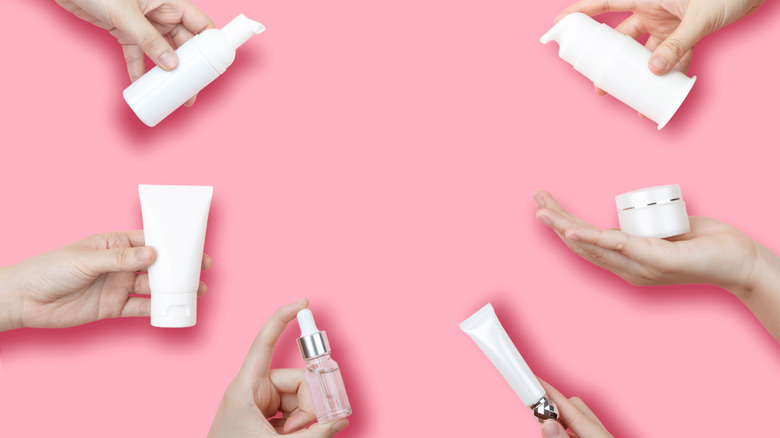Never Mix These Skincare Ingredients. Here's Why
Some marriages are just made in heaven — think peanut butter and chocolate (or chocolate and wine, for that matter). But when it comes to skincare, not all ingredients act in harmony with one another. And some combinations are just downright hostile. Knowing which products to combine or layer, and which to use all alone, can make the difference between soft and glowing, or dry and irritated skin. Dr. Shari Marchbein, a board-certified dermatologist in New York City, tells InStyle, "Mixing ingredients without proper knowledge of how these ingredients work and what other ingredients they may interact with will be not only a waste of money, but also time. It can also lead to frustration if less than expected results are seen (or if the skin becomes irritated)." Among the thousands of skincare ingredients, there are a few pairing no-no's to keep in mind.
First, watch the retinols and retinoids. Retinol is a form of vitamin A, which is loved for its work as an exfoliant and its ability to encourage rapid cell turnover. That, in turn, reduces the appearance of fine lines and wrinkles, uneven skin tone, and more — a process otherwise known as anti-aging. The downside? It can cause dryness and irritation. Because of that, it should not be combined with other exfoliating or acne-fighting ingredients, like salicylic acid or benzoyl peroxide, which can cancel out the benefits of both ingredients. Alpha hydroxy acids (AHAs) like glycolic and lactic acid can also cause over-drying and irritation in combination with retinol (via Skincare.com).
Not all skincare products can be mixed successfully
Another powerful ingredient to be careful of mixing is vitamin C, which is often used for brightening the skin and fading dark spots. It should not be combined with citric acid, which promotes skin peeling. Board-certified dermatologist and Skincare.com consultant Dr. Dendy Engelman explains, "Over-exfoliation will expose skin, weaken skin-barrier function and could trigger inflammation. If the barrier function is damaged, skin becomes vulnerable to infection from microorganisms, such as bacteria and fungus, and leads to sensitivity and irritation." Vitamin C should also not be combined with retinol, which requires a very different pH level to work effectively, or with AHAs. Dermatologists usually recommend using vitamin C in the morning, and retinol in the evening, to get the maximum benefit from both ingredients (via Everyday Health).
The bottom line? More is not always better when it comes to mixing skincare ingredients. Aegean Chan, a board-certified dermatologist based in Santa Barbara, California, recommends using any potentially irritating ingredients alone for at least a few weeks, to see how the skin responds (via Allure). She tells Allure, "If a certain ingredient leads to skin irritation on its own, you should definitely not use it with other potentially irritating ingredients."


